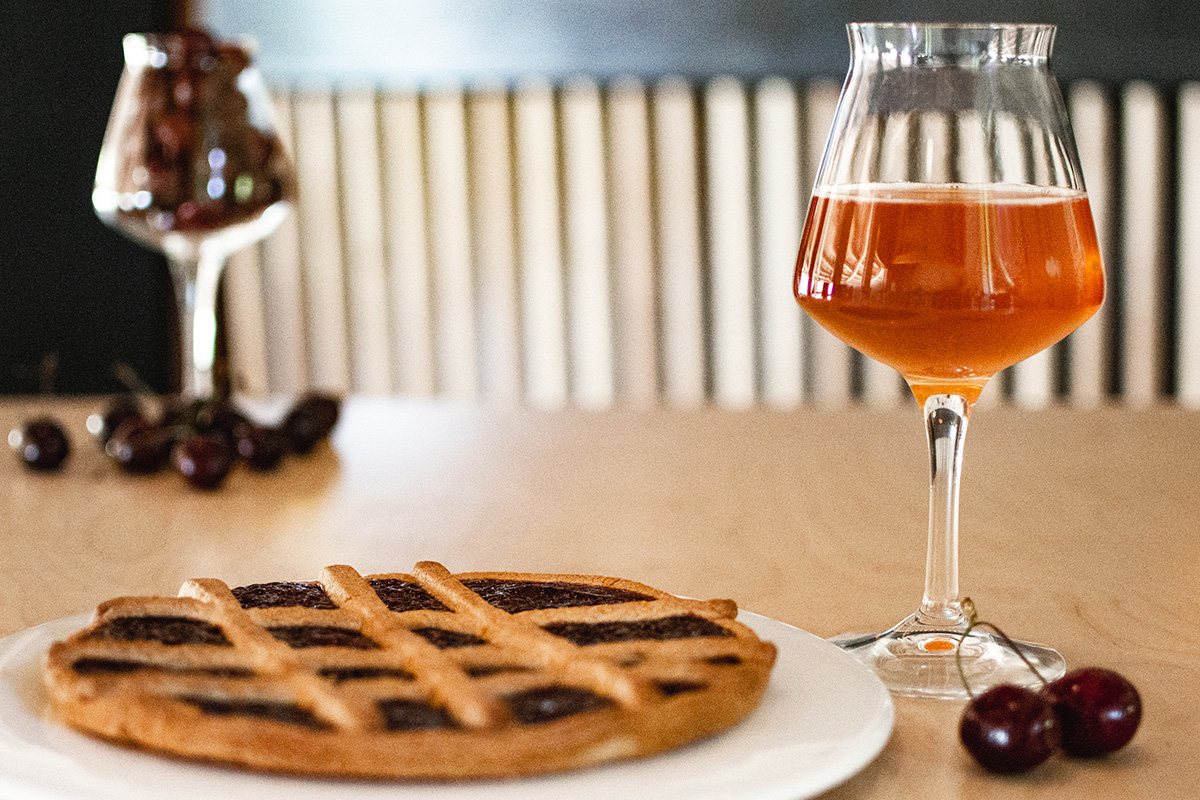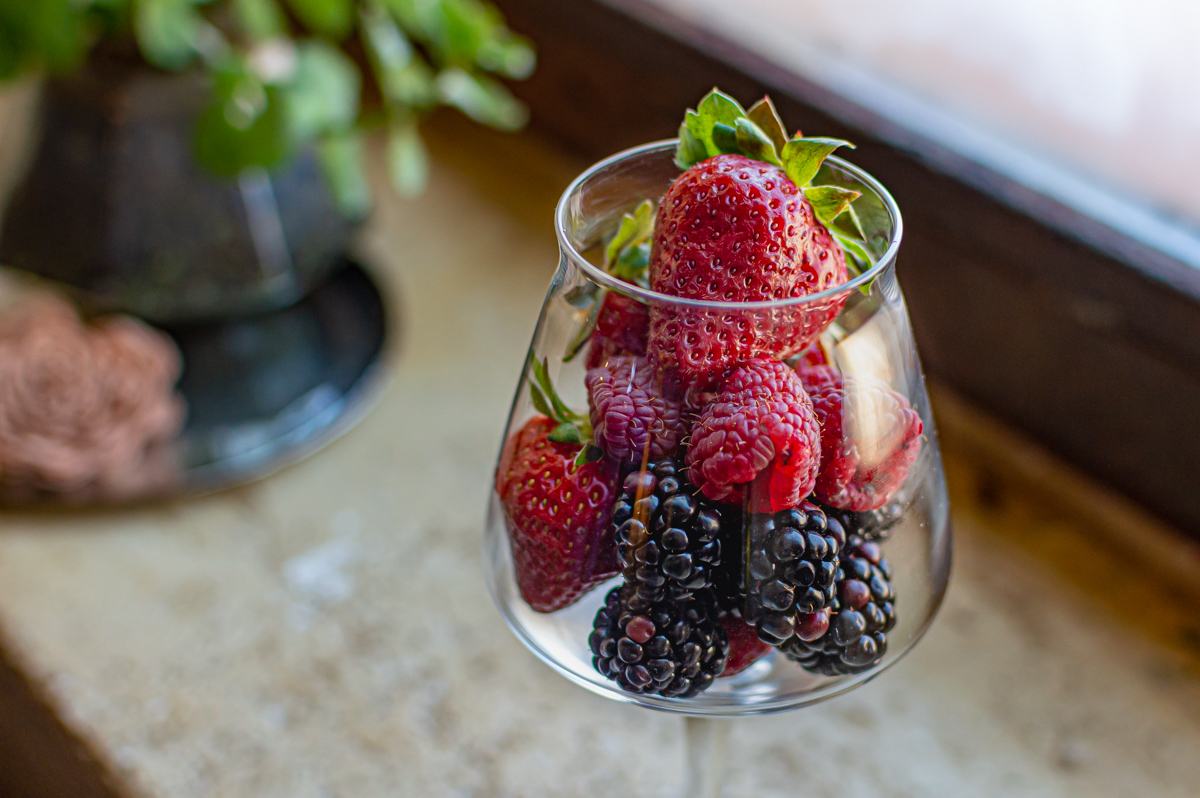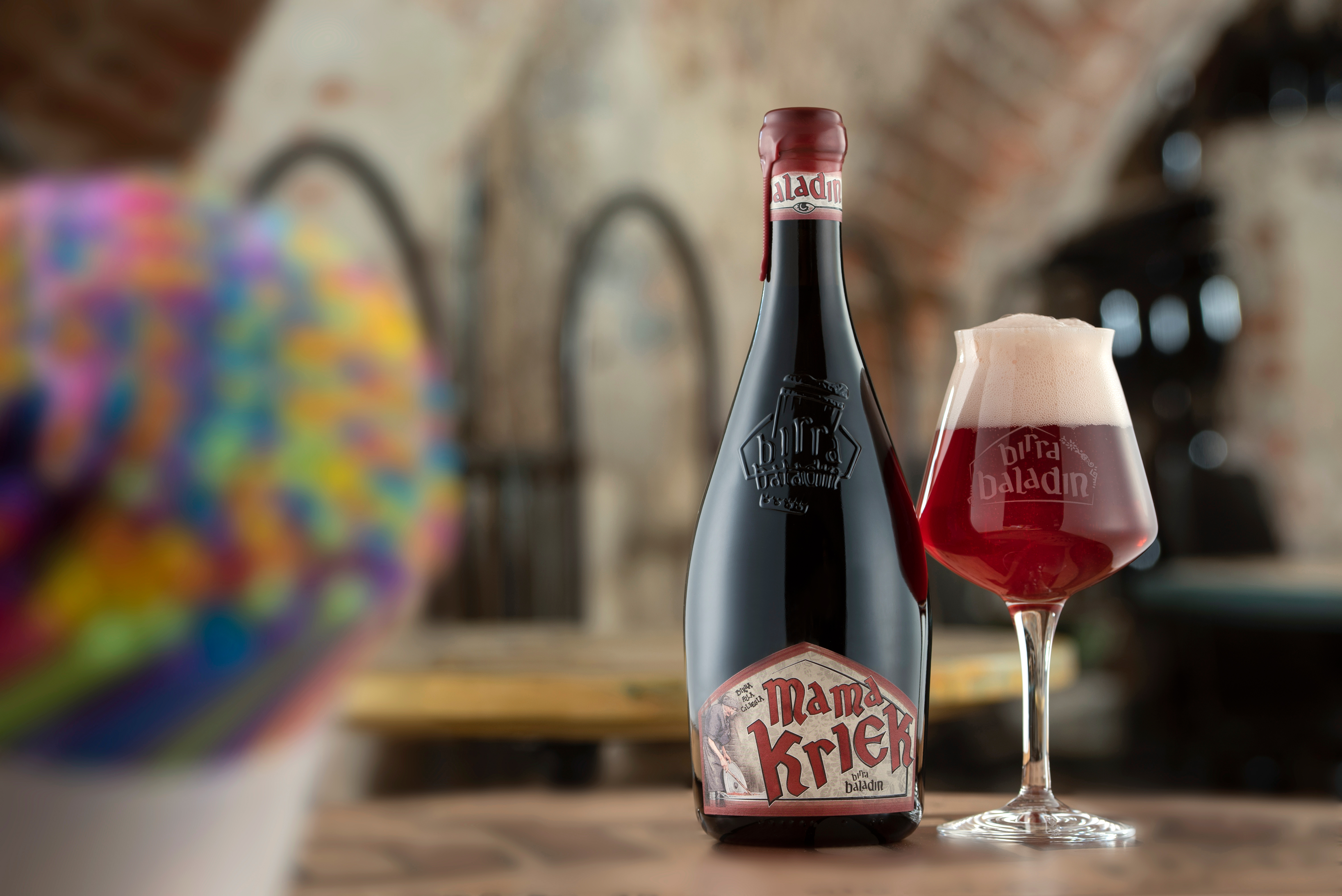Fruit beers like Kriek ... are they all Lambic?

The use of fruit in the international beer culture is a custom whose origins date back to the mists of time (and of beer). Although the standardization of industrial products has led to the disappearance of many local specialties, some beer styles made with the addition of fruit have survived.
SUBSCRIBE TO BALADIN NEWSLETTER
Newer styles have also emerged, thus contributing to keep this particular expression of the art of brewing interesting and varied. Despite such richness, often people think that Krieks, made with cherries, are the only Fruit Beers.
In reality, this large family is not limited to Belgium's spontaneously fermented beers. Furthermore, it includes the addition of many different types of fruit.
The World of Kriek
As mentioned, Krieks are spontaneously fermented beers from Belgium, brewed with the addition of sour cherries. The traditionally used cherries are of the Schaerbeek variety, small and similar to sour cherries. However, they are grown more and more rarely, so that today they are largely replaced by other qualities coming from abroad.
Krieks are (more or less bright) ruby red beers with a pinkish head and are characterized by intense fruity notes on top of the typical aromas of Lambic and its distinctive acidity. Fresh cherries are added in large amounts and contribute to a tumultuous fermentation with their additional sugars. Krieks are also bottle conditioned.
Framboise and other fruit Lambic
Cherries are not the only fruit used to “flavor” Lambic. The possibilities are virtually endless, but over time the use of raspberries has consolidated too, giving rise to a specific beer style called Framboise ("raspberry", precisely).
Framboise beers have similar characteristics to Krieks and other spontaneously fermented Fruit Beers made with grapes, plums, strawberries, blackberries, apricots, etc. All other beer styles that use fruit do not belong to the family of spontaneously fermented beers.
Between beer and wine: Italian Grape Ale
Looking at more modern styles of Fruit Beer, we'd like to start from Italian Grape Ales: the link between the beer and wine. They are made with the addition of grapes or, more often, grape must. This can be added at different stages and in different ways during the brewing process.
The style is very broad and there are no specific rules regarding color, alcohol content, type of fermentation and other aspects of the brewing process. Italian Grape Ales can be light and crisp, others are complex and alcoholic, some age in barrels or are brewed following a classic method. Obviously, their genesis is closely linked to Italy.
Grapefruit IPA
Among the many variations on the theme of modern India Pale Ales, the trend of Grapefruit IPAs has developed in recent years, especially in the United States. As the name suggests, these are IPAs made with the addition of grapefruit in different forms (juice, peels, etc.) with the goal of blending the aromas of hops with those of the fruit.
Grapefruit also gives freshness and a slight acidity which make Grapefruit IPAs particularly pleasant during the warm season.
Catharina Sour
Among the emerging styles in the international beer scene, it is worth mentioning Catharina Sour beers, typical of Brazil and in particular of the state of Santa Caterina. They can be considered as an evolution of the ancient Berliner Weisse, and are flavored with the addition of one or more exotic fruits.
The base is usually the product of the sour kettle technique, which is used to acidify wort in a safe and controlled way. The fruit can be tropical (mango, passion fruit, coconut, papaya, etc.), or of a different origin (blueberries, peaches, citrus fruits, etc.).
Other fruit styles
Technically, Pumpkin Ales are also Fruit Beers, as the fruits of cucurbits fall under this definition. They are typical of the United States. Although associated with the Halloween festive season, this style has a long and very peculiar history.
Outside codified styles, there are many other types of beer made with the addition of fruit, which aim at bringing out the special ingredient both in aromatic and organoleptic terms. Depending on the way it is added, fruit can add acidity, dryness, give a fuller body and emphasize other aspects that directly affect the tasting experience.





